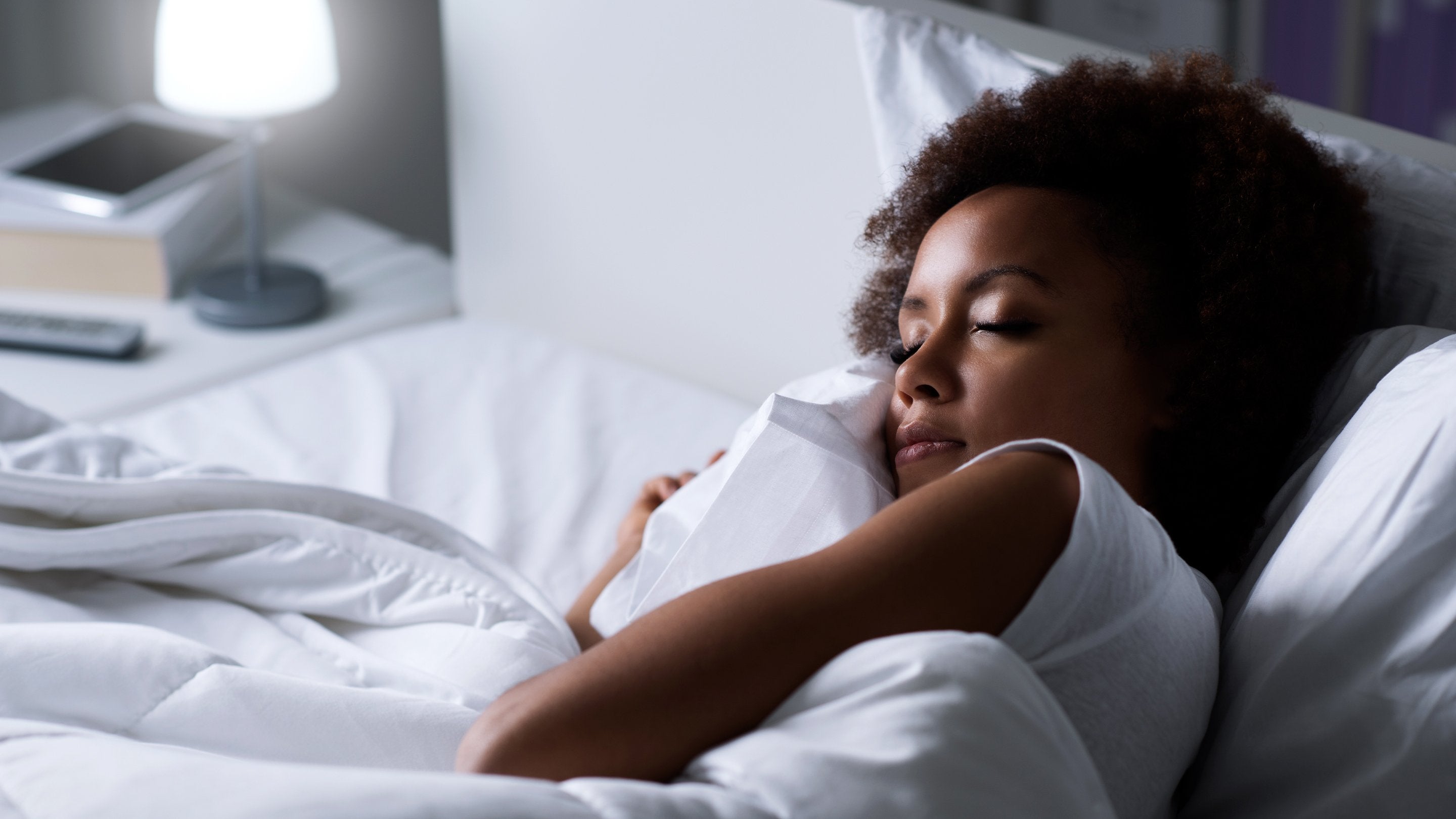DEEP SLEEP. Why is it so important in sports? Every athlete knows that when their mental game suffers, their whole game suffers. For professional athletes and casual players alike, mental health plays a major role in performance and recovery.
There are simple steps you can take to rest your brain and take charge of your mind. Read on to learn the importance of brain rest and how you can use it to get ahead.
Why does your brain need rest?
The four leading theories on sleep:
Science has taught us a lot about how the body and brain work together, but the reasons why we need sleep are actually still a mystery. There are four theories that offer an explanation, and they fall into four major categories: Evolution, Conservation, Restoration, Brain Plasticity.
Evolution - According to this theory, we “need” sleep because all or most of our ancient ancestors who didn’t need sleep had a tendency to get into fatal “accidents” at night. They’d trip over tree roots in the dark or fall victim to nocturnal predators — so their genes didn’t make it to the 21st century.
Conservation — or, “cut down on your body’s electric bill.” This theory states that sleep is the body’s way of conserving energy at a time when there’s not much to do anyway — that is, at night, for our hunter-gatherer ancestors. In times when food is scarce, this would make the need for sleep a big advantage.
Restoration - The restoration theory of sleep is based in evidence that the body needs sleep in order to carry out basic day-to-day functions, and that sleep deprivation actually causes illness. Studies have found that sleep-deprived animals actually get sick and die very quickly, and studies of (human) night-shift workers have found significantly higher rates of disease (as compared to day workers).
Brain plasticity — or, “the price of intelligence.” This final theory says that sleep is the price we pay for having such adaptable, flexible brains. Despite making up only two percent of your body mass (and that’s not an insult—it’s normal), your brain uses a quarter of your energy at rest. Why? Well, because the world is complicated, and our brains have to work on overdrive to make sense of it every day. In order to learn from the chaos, the brain needs time to regroup, rehash what it saw, and remove extraneous connections. This theory is supported by evidence that sleep deprivation has a significant negative impact on learning, attention, and memory.
Of these four big ideas, the last two are most relevant to people today. Modern life has largely done away with the problem of nocturnal predators and food scarcity, at least in first world countries. But even with safety and a high degree of food security, we still have to learn and we still have to recover from difficult tasks. Research suggests that a good night’s sleep might “reset” this connection so you can respond to challenges in better, more constructive ways.
The science so far: what does sleep (and not sleeping) do for your brain?
Sleep has a lot of different effects on your waking performance — that is, the quality of your sleep has a big impact on the quality of what you do when you’re awake. Sleep does wonders for your hippocampus, a part of your brain that plays a major role in long-term memory, learning, and spatial memory. Your hippocampus is a small part of your brain, but it has an important job — it’s the center for your emotions, memory, and autonomic nervous system.
When you lose sleep, the hippocampus takes a hit, and this means it’s harder for you to learn and remember things. This is because the hippocampus, according to recent studies of mice, does a lot of its important memory consolidation work during REM sleep. Specifically, it reorganizes itself so that, the next day, it’s easier for you to make generalizations, connect new ideas, and think outside the box.
Sleep makes it easier for your brain to “bounce back” emotionally from negative events. According to fMRI studies, lack of sleep disrupts an essential relationship between two parts of your brain. The amygdala, which plays a big role in fear, anxiety, and aggression, typically sends messages to the MPFC, or medial prefrontal cortex, for approval. When everything is working correctly, this circuit allows you to respond appropriately to what you experience in the moment, especially if the experience is negative.
When you haven’t gotten enough sleep, communication between the amygdala and the MPFC appears to fall apart, and all the negativity of the amygdala runs straight past the MPFC uncontrolled and unchallenged. You can guess the result: emotional imbalance and — in the worst case — emotional overload. Research suggests that a good night’s sleep might “reset” this connection so you can respond to challenges in better, more constructive ways.
If sleep is the key to a rested, centered brain, how do we get better sleep? Getting better sleep is not an easy task, especially today. Distractions and obstacles come from all directions and in all forms: bright lights and loud noises at night, sedentary jobs that don’t make us physically tired, fast-paced and demanding workplaces that keep our stress levels high, odd meal schedules that confuse our circadian rhythms — let’s just say we don’t have the home field advantage we used to have during simpler times.
To overcome these obstacles and get a good night’s sleep, there are a few simple steps you can take:
- Straighten out your circadian rhythm by moderating light and food.
- Deepen your sleep by staying active during the day.
- Lower your stress by taking 10 to 30 minutes each day to be mindful.
It can be hard to get to sleep when you’re feeling stressed out or when your thoughts are “out of control.” Insomnia, after all, is a symptom of both anxiety and depression, both of which can be tamed (at least in part) through mindfulness.
One side note to begin: if you think mindfulness is a fad, you might want to reconsider. While it’s true that mindfulness has dramatically risen in popularity over the past few decades, it’s probably not a fad for two reasons: It derives from Buddhist practices, and Buddhism is thousands of years old. Mindfulness practices have been studied scientifically since the 1970s, and there’s a lot of evidence to support the idea that they actually work.
Straighten out your circadian rhythm by moderating light and food. As we talked about in The Circadian Rhythm: What it is and Why It’s Important, your circadian rhythm is your body’s internal clock. It controls your natural sleep-wake cycle and many of your hormones. It can also change, depending on your environment. Most importantly, your body’s “master clock,” which controls all your other internal clocks, resets when your eyes take in blue light.
This is a problem because in the modern world, blue light is everywhere all the time — and as a result, your internal clock gets confused, you don’t feel tired at the right time, your hormones get messed up, and sometimes you even get sick.
Take charge of your circadian rhythm
- Minimize screen time at night at least an hour before bed, especially light from TVs and smartphones.
- Wake up at the same time every day, eat breakfast at the same time every day, and go outside first thing in the morning to give your brain an unambiguous cue that the day has started.
- Go to bed at the same time every night.
- Make sure you swallow your last bite of dinner three hours before bedtime so that your body has time to transition to “sleep mode.”
- Make your bedroom as “sleep-inducing” as possible by removing bright lights and stressful stimuli. In other words, if you’re using your bedroom as an office or dining room, stop.
- Take Charge If your goal is to rest your brain, you should improve your sleep by aligning your circadian rhythm, getting plenty of physical activity, and taming sleepless thoughts through mindfulness exercises. This might seem like a complex answer, but your brain is a complex question. Everything we know at this time says that giving your brain adequate rest is essential, and thankfully, science has identified several ways in which you enable your brain to get what it needs. By taking charge of your rest, your actions, and your thoughts, you can give your brain what it needs to stay at its peak. Most importantly, your body’s “master clock,” which controls all your other internal clocks, resets when your eyes take in blue light.
- Deepen your sleep by staying active during the day. If you think about it, it probably makes sense that if you had a physically exhausting day, it will be easier to get to sleep at night. (Hence we use the words “tired,” “exhausted,” and “fatigued” almost interchangeably.) Not only is this an intuitive “fact,” but we can also point to scientific studies that confirm that physical activity enables better, deeper sleep. For example, at least six studies have found that long-term exercise reduces “sleep latency,” which is the time it takes for a person to fall asleep after the lights are off.
According to a recent review, regular exercise appears to give the most reliable benefits to middle-aged adults, who had better sleep efficiency and longer sleep duration after an exercise program. Intense exercise before bedtime has been shown to improve sleep quality, and most recently, a study concluded that exercise can even protect against the negative effects of a disrupted circadian rhythm.
To sum up the science: Exercise makes it easier to fall asleep. Deep sleep. It makes you sleep better, longer, and more efficiently. It protects you from the effects of a messed-up circadian rhythm.
Bottom line: get outside and get moving.
Research shows that Mindfulness significantly reduces symptoms of anxiety and depression. According to a broad review of 36 studies that looked at the effect of several weeks of mindfulness training, mindfulness can significantly reduce symptoms of anxiety and depression with an effect comparable to that of antidepressants. To boost your focus, be more at peace, and lower your stress, try to incorporate mindfulness into your daily routine.





